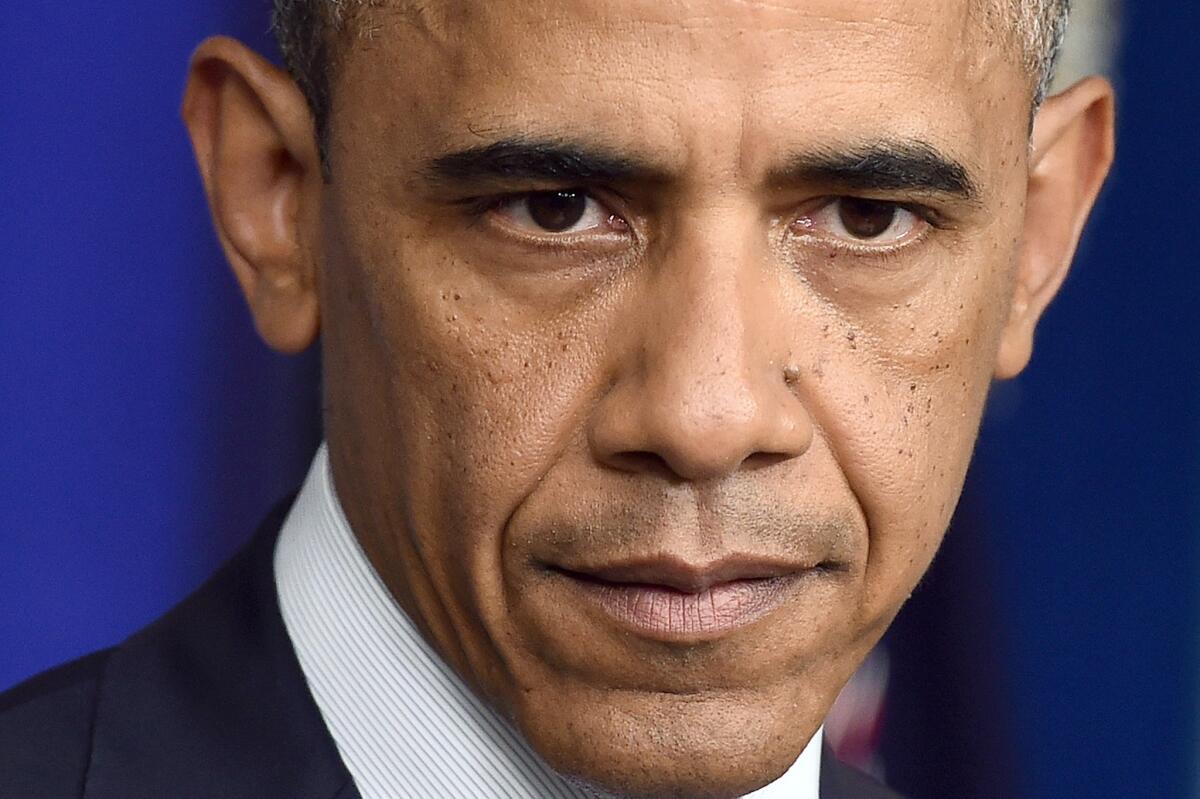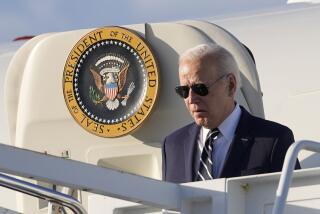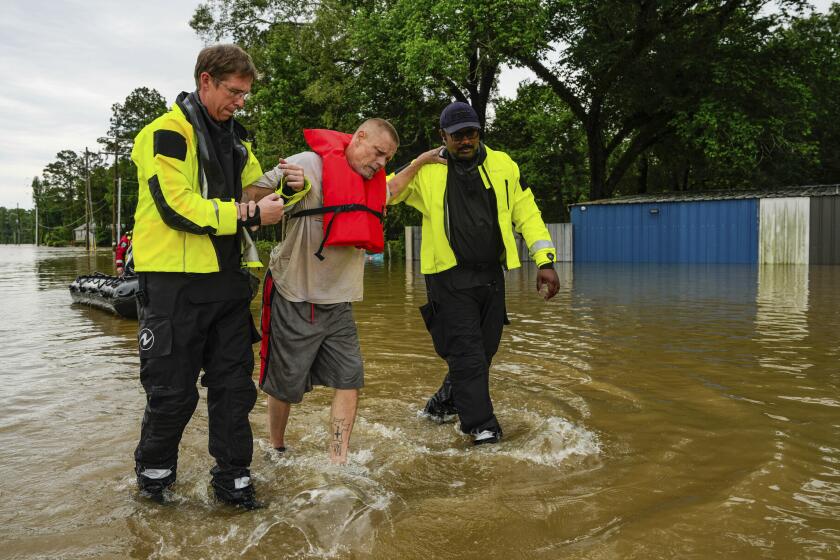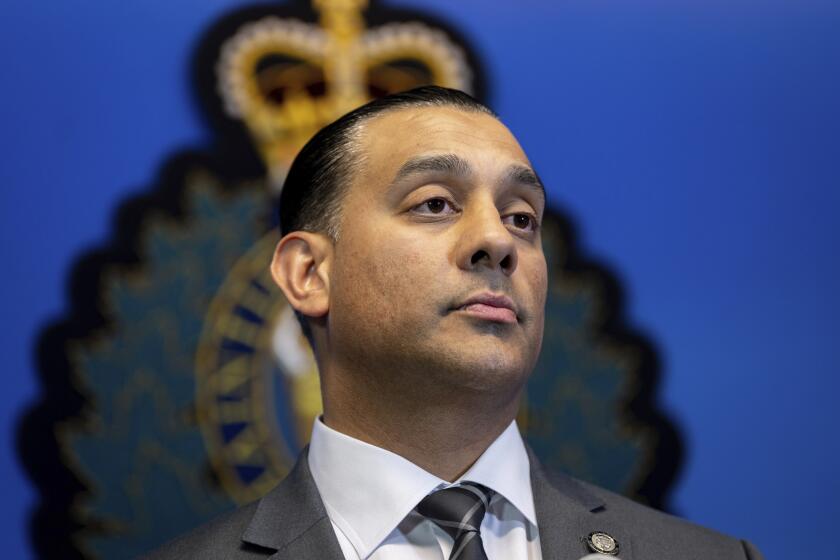Obama cites ‘real progress’ in Iran nuclear talks

President Obama said Wednesday that international negotiations over Iran’s nuclear program have made “real progress in several areas,” and have produced a “credible way forward,” despite substantial differences between Tehran and six world powers.
In an appearance at the White House, Obama said he continues to weigh whether to press forward with the negotiations if they don’t conclude by a self-imposed deadline Sunday. But his positive comments suggested that he is leaning toward continuing the 5-month-old diplomatic effort.
Although “significant gaps” remain, Iran has met its commitments under the interim nuclear deal reached in November, the president said, adding that he would continue discussions with Congress, Iran and the five other countries in negotiations.
In Vienna, Secretary of State John F. Kerry and Iranian Foreign Minister Mohammad Javad Zarif signaled Tuesday that talks probably would be extended, saying they believed progress had been made, even though the two sides have been at an impasse on the core issue of how much uranium enrichment equipment Iran should retain.
Kerry returned to Washington on Tuesday, where he met with Obama and Vice President Biden to discuss Iran and other foreign policy crises.
In Vienna, meanwhile, diplomats discussed pausing the talks for several weeks, but said they had not resolved the issue.
It remains unclear whether the group could extend a preliminary agreement that has governed present negotiations, or would need to negotiate new terms that include additional incentives for Iran and the six world powers. If new terms are required, the deal-making could take time.
Iran and the six powers – France, Britain, Germany, Russia, China and the United States – have been seeking an agreement that would ease international sanctions on Iran if it accepts restrictions aimed at guaranteeing that it doesn’t gain the capability to build nuclear weapons.
Congressional skeptics are trying to build support for new sanctions. They also want to set mandatory terms for the final deal or require that Congress gets a say in the negotiations.
Sen. Bob Menendez (D-N.J.), chairman of the Senate Foreign Relations Committee, and Sen. Lindsey Graham (R-S.C.) are seeking support for a proposal to impose tough requirements on any deal, including a 20-year period of intrusive inspections and monitoring. Iran wants the deal to end within a decade.
Rep. Ed Royce (R-Fullerton) has proposed a new congressional debate over additional sanctions, arguing that Iran has failed to make necessary concessions during the last six months.
Several supporters contend that it will be difficult for the skeptics to block an extension of the negotiations, since Democrats control the Senate, and only two weeks remain before the August recess and fall election campaigns.
Hennessey reported from Washington and Richter from Vienna. Times staff writer Christi Parsons contributed from Washington.
More to Read
Start your day right
Sign up for Essential California for news, features and recommendations from the L.A. Times and beyond in your inbox six days a week.
You may occasionally receive promotional content from the Los Angeles Times.








